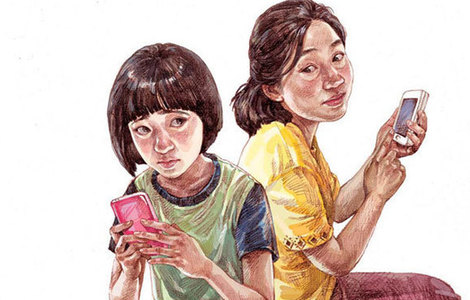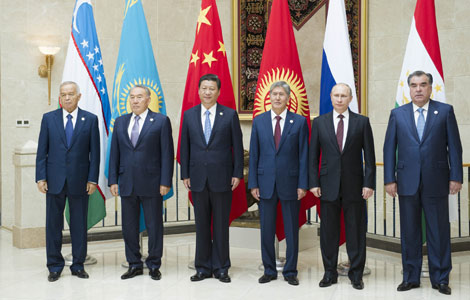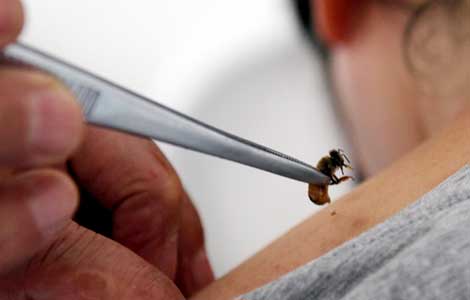Four men given death sentences in Indian gang rape
Updated: 2013-09-15 09:19
(Agencies)
|
||||||||
NEW DELHI -- An Indian court Friday sentenced to death four men for the gang rape and murder of a young New Delhi woman, ordering them to the gallows for a brutal attack that riveted India, where it became a symbol of the rampant mistreatment of women and the government's inability to deal with crime.
Issuing his decision, Judge Yogesh Khanna said the attack "shocked the collective conscience" of India. "In these times, when crime against women is on the rise, the courts cannot turn a blind eye toward such gruesome crimes."
After the death sentence, the wail of one of the four men, 20-year-old Vinay Sharma, filled the tiny courtroom. Sharma, an assistant at a gym, then broke down in sobs.
As Khanna walked from his bench, defense lawyer A.P. Singh, who has defended all four men at various times, began to shout at him: "This is not the victory of truth. But it is the defeat of justice."
Like all death sentences, Khanna's order must be confirmed by India's High Court. The men can appeal their case to the High Court, as well as to the Supreme Court, and ask the president for clemency.
The victim's family, along with numerous politicians and government officials, had long called for the men to be executed. The family was in the courtroom as the sentence was announced, and were relieved at the results. "I am very happy our girl has got justice," said the victim's father, who cannot be named under Indian laws guarding his daughter's identity as a rape victim.
The 23-year-old victim and a male friend - by all accounts they were not romantically involved - were coming home last December from an evening showing of the movie "Life of Pi" when the men lured them into boarding a bus they were joy-riding through the city. They quickly beat the friend, held the woman down and took turns raping her. They also penetrated her with a metal rod, causing the injuries that led to her death in a Singapore hospital.
India's Supreme Court has ruled that the death penalty should be used only in "the rarest of rare cases," though what defines those cases remains highly debated. Only two people - both terrorists - have been executed in India since 2004.
Under intense pressure, the Congress party-led national government worked hard to project a tough-on-crime image after the attack, reforming a series of laws on sexual violence. Many in the Congress, which faces dwindling support and national elections next year, had made clear they wanted the men to be executed.
Home Minister Sushilkumar Shinde, who earlier in the week said death sentences were assured in the case, welcomed the sentence. "The victim and her family have got justice," he told reporters in New Delhi. "The judge has set an example for anti-social elements that they would meet a similar fate if they committed such crimes."

 China urges release of detained cruise liner
China urges release of detained cruise liner
 Japan launches rocket Epsilon from Kagoshima
Japan launches rocket Epsilon from Kagoshima
 Family networks
Family networks
 Faye Wong announces her divorce
Faye Wong announces her divorce
 Beijing backs truce bid in Syria
Beijing backs truce bid in Syria
 Parents support stricter rules on children's books
Parents support stricter rules on children's books
 Ouch ... bee therapy causes a real buzz
Ouch ... bee therapy causes a real buzz
 Faye Wong and Li Yapeng shock fans with divorce
Faye Wong and Li Yapeng shock fans with divorce
Most Viewed
Editor's Picks

|

|

|

|

|

|
Today's Top News
Japan launches rocket Epsilon from Kagoshima
Chinese Kungfu kicks off New York Mets
US, Russia agree on Syrian chemical weapons
Senior Party official stresses ecological progress
Interest rate liberalization on way
China's top political advisor meets Vanuatu PM
Retrial of Egypt's Mubarak postponed
Four men get death in gang rape
US Weekly

|

|






